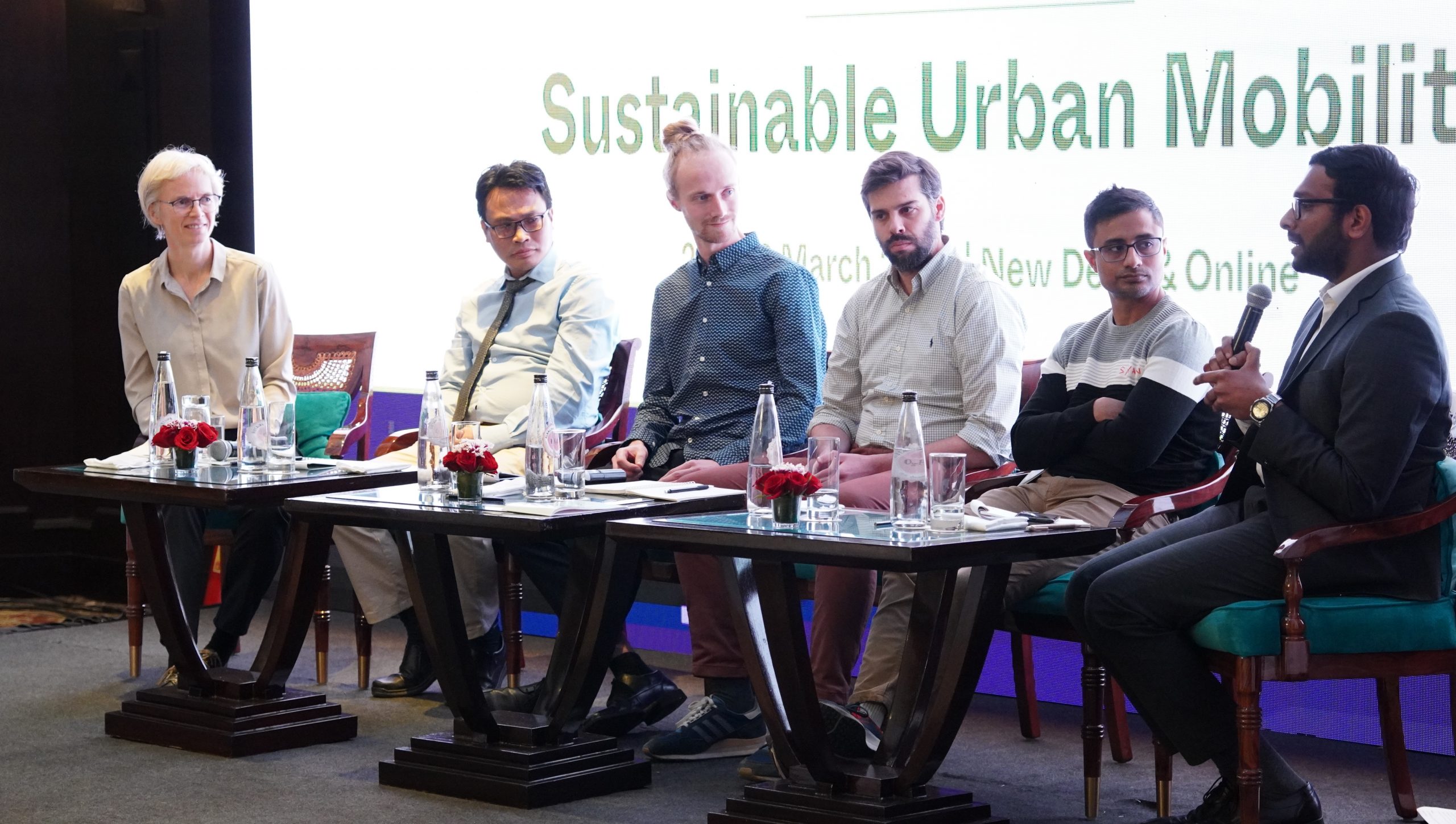Innovating for the Future: How India-Germany Cooperation Can Drive Sustainable Mobility
Prof. Dr Regine Gerike, a leading expert in sustainable urban mobility and head of Integrated Transport Planning and Traffic Engineering at Technical University Dresden, highlights pressing challenges in sustainable urban mobility. She shares her motivation to mentor early career researchers in DWIH New Delhi’s “Integrated Engineering for Future Mobility” workshop, and emphasizes the importance of India-Germany cooperation for sustainable transport and mobility. Her research focuses on sustainable transportation services, road safety, and analysing transport demand and mobility.

Prof. Dr. Regine Gerike
Head- Chair of Integrated Transport Planning and Traffic Engineering, Technical University Dresden
Her research areas include planning of sustainable transport services and infrastructures, quality and safety in road transport, analysis of transport demand and mobility.
What are the most pressing challenges facing sustainable urban mobility currently?
Reducing greenhouse gas emissions is a major challenge. The recently published shows again the urgent need for action and that we even need to accelerate our efforts.
Reduced greenhouse gas emissions can come with various synergies to other challenges such as reduced car ownership and car use, noise, resource and energy consumption.
You were a mentor at the week-long workshop on “Integrated Engineering for Future Mobility”. What motivated you to engage in an event tailored towards early career researchers?
It is always a privilege for me to work with young researchers with deep knowledge in their specific fields, open minds and fresh ideas. It was also a privilege to work with a highly interdisciplinary group and with researchers from both countries, India and Germany. In addition, the workshop format of was new for me. It was a great way to work together.
You have been working on research projects with India for a while. In your opinion why should India and Germany cooperate for sustainable transport and mobility?
Although transportation systems and societal framework conditions differ substantially between the two countries’ researchers in both countries are very well educated and easily find a common language and research interests.
This comes with a great potential to learn from each other, to run comparative studies, to provide evidence on possible pathways towards greenhouse gas neutral, safe, healthy and sustainable transportation systems and sustainable mobility in both countries and beyond.
As a part of Indo-German Forum on Sustainable Urban Mobility, hosted by DWIH New Delhi on 22 March 2023, Prof. Dr. Regine Gerike, lead a panel on Integrated Engineering for Future Mobility.
The participants she mentored as a part of workshop, were led into a discussion to bring to light their observations and findings. As a truly interdisciplinary group, their focus areas varied from Planning and IT to Operations and EV Technology. This coupled with their unique cultural and geographical experiences, allowed them to tackle issues like demand management of mobility as a service, individual versus system optimization etc.
Panel Discussion: Integrated Engineering for Future Mobility
Find out about the panel’s take on these pressing issues, and their potential solutions.

